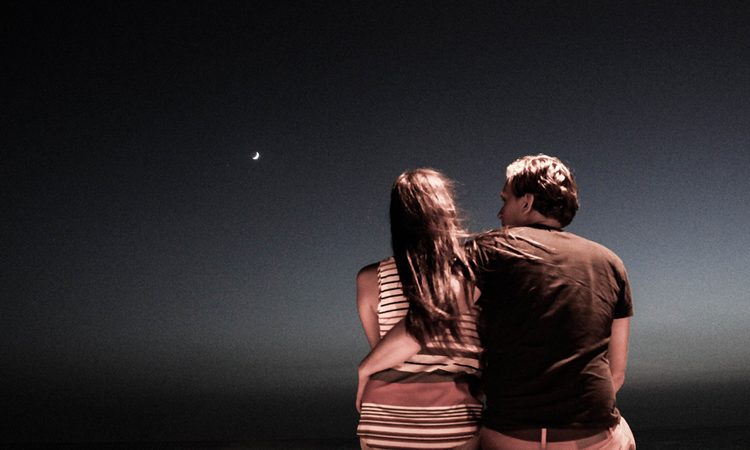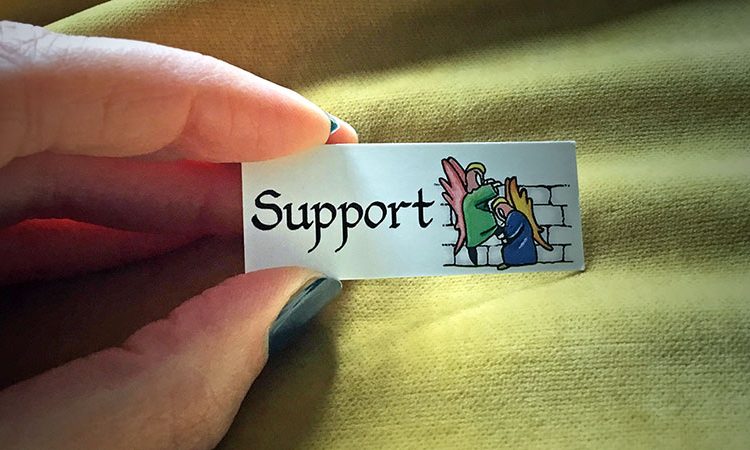“Remember, when the current hits you’re going to want to get out of it as soon as possible,” my dive guide yells over the chaos on deck. The crew swings tanks around while shouting, people throw on their scuba gear while the waves crash into us, and I stand at the edge of the boat straining to hear my dive guide. “Don’t work too hard in the current or you’ll run out of oxygen. Watch your weight down there, too, and adjust as needed. Simple. Okay, jump!”
Holding my mask and mouthpiece, I plunge into the sea with my mind in the same turmoil that was happening on deck.
Diving right now, there’s a chance that my ears don’t pop and the dive ends early, leaving my group mad at me. I can barely make it to the grocery store without Google Maps and I’m supposed to navigate this dive on my own. I’ve always loved the water but I know I’m not the strongest swimmer: I could easily run out of oxygen trying to fight the current or, even more likely, I could be swept away by it.
My thoughts grow more grave and are already weighing on me as I float on the surface waiting for my dive partner and dive guide to jump in after me.
This isn’t abnormal. Well, bobbing in the middle of the sea is, but taking things so seriously, having worst-case scenario thoughts, and the weight that comes with both isn’t. It doesn’t matter if I’m doing something new or something completely routine: if my anxiety whispers into my ear, a chain reaction of “what ifs” or “and thens” stampede through my brain, making mountains out of molehills—or in this case, oceans out of puddles. Even in the least serious of situations, my anxiety has the uncanny ability to sober it up, leaving me drowning in the middle of a sea I created for myself.
A wave clapping against me brings me back to reality in time to give the okay signal for my dive team to descend. Making our way down, the world becomes quieter in the water, which allows my thoughts to grow louder and more grim.
Orienting myself and checking my map upon reaching our depth, I swim towards the pass we have to cross to reach the reef. A slit on a never-ending wall of rock, I can feel the current already humming around me.

I can’t swim through this pass. I’m not strong enough. I shouldn’t be here. If I can’t make it I don’t deserve to be a diver. The current is more powerful than me and–
And then, almost face-to-face with the pass and able to see the other side, I freeze.
The gravity of my thoughts holds me still even though, in the water, I am weightless. My body is too heavy to move despite being suspended in water. With every second that passes, I lose oxygen and precious time to be this deep.
Whoosh.
I feel a surge of water around me as a fish whizzes by my face.
Whoosh. Whoosh. Whoosh.
More fish fly by. I watch them pop out of the current and nonchalantly float away. Looking through the pass, I see fish enter the current and ride it like a subway to get through. Further back, fish cross the current as if it were a crosswalk at a busy intersection.

Inch by inch, my body unfreezes while watching this interplay between fish and current until I am making my way through the pass too. Even though I am moving against the current, I finally feel the fact that I am floating. My anxious thoughts and the heaviness they bring sail away with the bubbles coming from my mouthpiece as I laugh at the miraculous city existing below the surface full of fish commuting on their way to work.
Once my dive group and I reach the other side of the pass, I glide effortlessly through the water. Taking in the schools of fish that dance in unison, the rainbows on the parrotfish, and the alien-looking shrimp, my mind is no longer filled with the seriousness from before. My thoughts are filled with wonder at the sights surrounding me. They are as light as a feather. As light, in fact, as my body is in the water. I finish the dive with laughter as we spin upside down to spot eels under rocks and I even let myself be carried by a light current we come across towards while ascending to the surface.
“Remember, when the current hits you’re going to want to enjoy it as much as possible,” I correct my dive guide on deck once we finish the dive. The crew puts tanks away while singing, people take off their scuba gear while the waves playfully splash us, and I stand at the edge of the boat editing my dive guide’s speech. “Don’t work too hard in the current or you’ll miss the things that take your breath away. Really, there’s nothing to worry about down there or up here. Be light and let it all take you away. Simple. No, don’t jump!”
 Grace Olscamp is an adventure and mental health author based out of Salt Lake City, Utah. Between consulting for public relations and writing, she can be found petting every dog she sees on the trail or at the crag, meditating, using her turn signal, or baking bread. You can find her work here or follow her adventures here.
Grace Olscamp is an adventure and mental health author based out of Salt Lake City, Utah. Between consulting for public relations and writing, she can be found petting every dog she sees on the trail or at the crag, meditating, using her turn signal, or baking bread. You can find her work here or follow her adventures here.






Leave a Reply